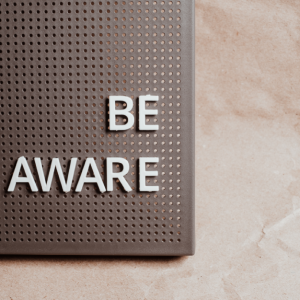Facing our Fears
There are so many of us who are living in fear. America’s top fears coming into 2022 were Democracy/Government corruption, Loved ones dying, a Major epidemic, and Jobs/Economic/ Financial collapse. These are fears of what is in store for the world. On a personal basis, we often fear being criticized, fear of failure, living in poverty, ill health, old age, loss of a loved one, or death.
Everyone encounters fear-inducing situations. Not all fear is equal or unique. Should all fears be faced? It is always a cost-benefit analysis. The question is: How much is this fear interfering with your life? If you cannot easily avoid it, like taking in the elevator, for instance, or getting a shot from a doctor, flying in a plane when you love to travel, etc. Then there are clear benefits to overcoming the fear. If, on the other hand, you can easily avoid your particular fear, like fearing a Tsunami when you don’t live near an ocean or a fear of Tarantula when the odds are you may never encounter one; then you may not have the urge to face that fear, and that is OK.

“Don’t be afraid, but be fearless!”
It is essential to identify our Fear(s), acknowledge the fear, and accept it with compassion for ourselves and what we are feeling. The fear will begin to dissipate. It is old school to teach that we must make our fears go away. If we say, “Don’t be afraid, but be fearless!”, this advice can create shame when we still feel fear. Nowadays, we teach that to feel fear is human. We cannot get rid of it, but we can learn to accept and manage our fears. We can listen to our minds and then do the opposite of what it wants us to do. Feel the fear and use it as a tool to get out of our comfort zone. (Trevor Ragan; TedX Cedar Rapids).
Remember, fear is serving you. We experience fear as our truth. We can reflect on why we found the situation overwhelming and be better equipped to deal with a similar situation. Avoiding Fear will prevent us from stepping out of our comfort zone, which we need to do to grow.
Avoiding what we fear increases the risk of developing an anxiety disorder, especially if the fears are extreme or prolonged. We can feel paralyzed emotionally and develop ill health. Avoiding situations that you fear might make you feel better in the short term, but avoidance can actually increase anxiety in the long term. The fear puts a halt to our progress: whether in our careers or even enjoying the daily activities in our life. Avoidance teaches that little almond-shaped structure in our brain called the “amygdala”, that we cannot handle our fears. The amygdala receives sensory signals that alert it to deluge our body with messages preparing us to fight, freeze, or flee. It is our insurance against harm. If the fear or terror is benign, however, our “prefrontal cortex” will temper the initial response from the amygdale and calm us down.
The benefits of fear are that it heightens our sense of awareness and sharpens our thinking. By acknowledging and pushing past the fear, we can use it to grow. Think about what you can do to meet the challenges of a particular fear. It can make us feel drained, but we should gain pride and reflect on our bravery if we push through it!
There are some tips on managing our fears from Robin Stern (Ph.D. Associate Director of Yale Center for Emotional Intelligence, Connecticut):
- Stop judging yourself negatively for being afraid. Practice reframing how you look at that fear. Just consider the information your body is telling you, then decide how valuable that information is, and decide what to do!
- Slow down; breath from the belly, taking slow deep breaths.
- Be an emotion scientist. Listen and be curious about what is driving you to be afraid of something. Rather than avoiding it or shutting it down, ask yourself, where is it coming from?
- Practice positive self-talk instead of negative self-talk. Say, “I’ve got this,” or “I can do this.”
- Try Exposure Therapy, where you gradually and repeatedly expose yourself to what you fear until you feel less anxious. Do it in a safe place. Our brain will see that we choose to confront what we fear, thus helping us dissipate the fear.
- Some situations may call for certain Medications from your Doctor.
In conclusion, remember that fear is triggered by a perceived threat and signals our bodies to respond to danger with a fight or flight response. That is an essential part of keeping us safe. However, when people live in constant fear, they can experience negative impacts in all areas of their lives and become incapacitated. As we learn to acknowledge, identify, and manage our fears with compassion for ourselves, we build self-esteem and feel a great sense of accomplishment.
New to Vibeonix and want to experience a FREE 7-Day Trial of Vibeonix? Click here to get started today and learn what you can do to improve your Emotional Intelligence.Already a user?
Have you measured your Vibe today using the Vibeonix App Assessment? Click Here to Access The Vibeonix App and take the Voice AI Assessment.